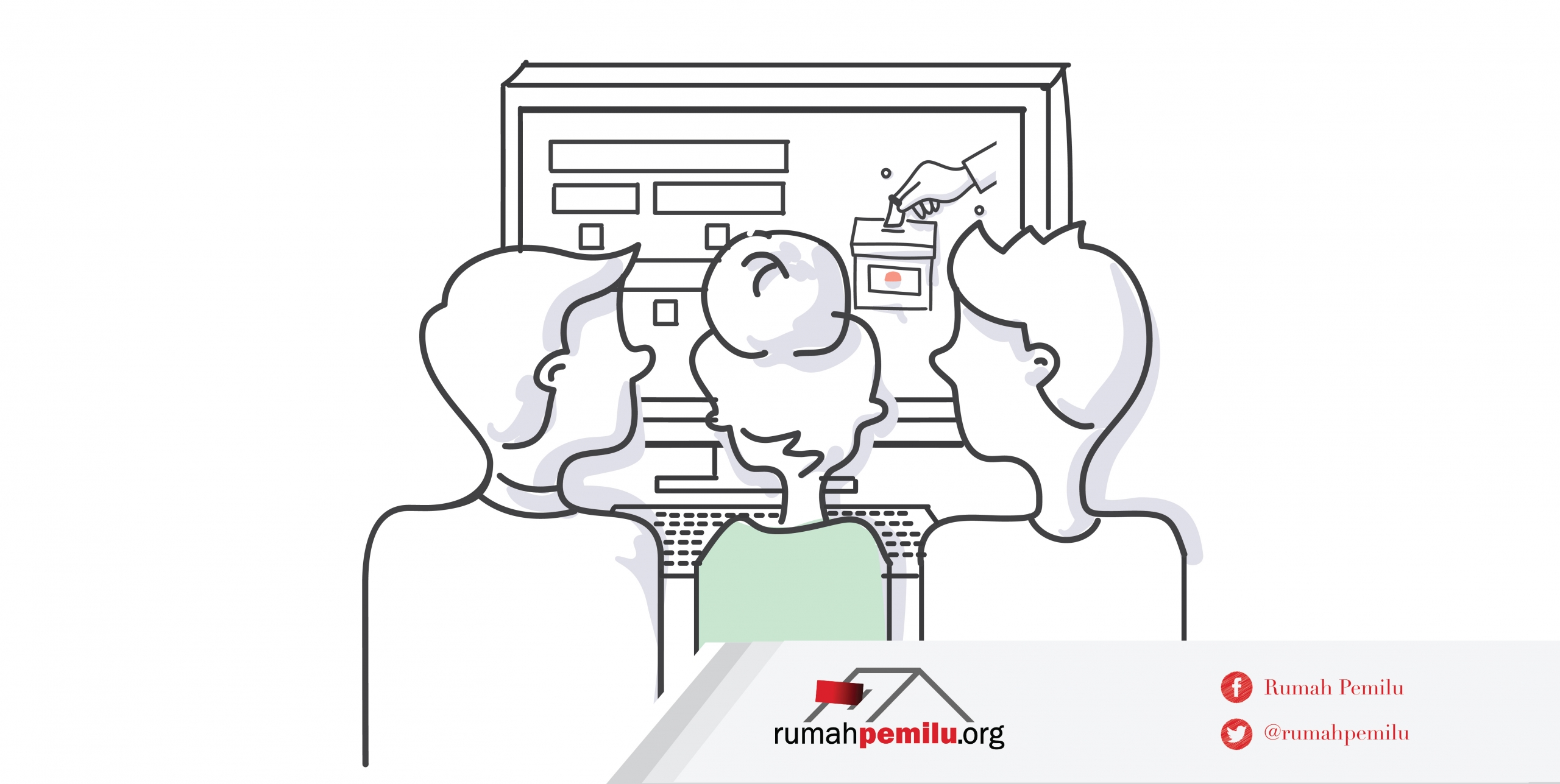Today*s democracy can not run smoothly without participating in digital platform movement. On the other hand, digital democracy will stagnate without moving in the real world.
September 2014, the election law through regional parliament was ratified by the House of Representatives. Many movements emerged against the ratification of this law. This long road from the local people movement succeeded in restoring direct elections of regional heads.
Plenary Session of the House of Representatives on January 20, 2015 formally approved the Government Regulation in Lieu of Law No. 1 Year 2014 regarding the Election of Governors, Regents and Mayors (Perppu No. 1 of 2014) to be enacted into law. The attestation confirms direct elections of regional heads.
The return of indirect to direct elections is a proof that entanglement in digital platforms and real movements is able to prove the success of the movement-change in legislation in full.
In digital platform
Association for Elections and Democracy (Perludem) initiated Direct Election Support petition through change.org . Since the petition was initiated and propagated through the social media; Facebook and Twitter, a lot of support have been given through this online petition*s site.
“Social media is becoming the most effective base of support to disseminate the issue of direct elections to public,” said Lia Wulandari, the initiator of this online petition, when contacted (25/4).
This change.org petition has collected 118.992 signatories. This has become the most supported petition of political issues atchange.org. Coinciding with the increase of the signatories, hashtag on social media expressed their supports for direct elections. For example, the hashtag #ShameOnYouSBY became trending topics on Twitter. Although it had disappeared, similar hashtag repeatedly appeared on social media.
This movement is considered helpless without real movement on the ground. The signing of the petition or boisterousness in social media should go hand in hand with the movement in the real world.
“Digital democracy movement is not illusionary-it seems present, but in fact it isn*t. This movement has participants. This is evident from a form of hearing with policy makers and demonstrations in the street, “said Titi Anggraini, Executive Director of the Association for Elections and Democracy (Perludem), during a discussion “Digital Strategies in Change,”at the Jogja National Museum (21/4).
In non-digital platform
Movements in the real world, according to Titi, can be reached in two ways. First, bringing the boisterous conversations in social media to the real world with actions and demonstrations. Second, supporting efforts through the aspiration that has been provided: the legislature and the executive as a result of the election.
She added that a coalition of civil society who went to the streets has spread to other provinces in Indonesia. Students, workers and farmers groups, women*s groups, academics, and the general public were involved in street actions.
Not only that, on September 17, 2014, Guard Election Law Draft coalition handed in petitions and open letters called #DukungPilkadaLangsung to the President of the Republic of Indonesia, Susilo Bambang Yudhoyono (SBY) at Istana Negara.
Hearings were also conducted with The All Indonesian Regency Administration Association (Apkasi) and Association of Town Governments (Asosiasi Pemerintah Kota Seluruh Indonesia, Apeksi). The heads of the region gathered in Jakarta to formulate a set of recommendations to the president and parliament and firmly rejected the election by parliament.
To Parliament, dialogues have also been intensified. The strategic role of the legislature as policy makers certainly can not be abandoned.
Digital and Non-digital Interrelationship
Lia Toriana, Manager of Youth Department Transparency International Indonesia, had worried about disconnectedness between democracy movement in digital and nondigital worlds (21/3). “Previously we had no problems connecting online with the offline. Now it is added by disconnectedness of democracy with the cultural activism at the level of structure, “said Lia.
She mentioned about issue of anti-corruption movement. Movement in the digital platform with hashtag #SaveKPK was more cultural and not connected with structural movements. Structural movement, she added, is through the election and the election results. “We forgot that corruption can be overcome significantly by the improvement of party and election,” said Lia.
Titi Anggraini confirmed that digital platforms should be positioned as another method of large improvement and democratization performed. Similarly, Arief Aziz, director of Change.org Indonesia, assumed that the movement in the digital world is another method of inevitable large advocacy in today*s cyber era. “The petition is made to complement great advocacy run. Online petition is just another campaign method. Ideas are contested in cyberspace. Which is more supported by many people. But more petitions are not necessarily successful and few petitions are not necessarily unsuccessful either, “said Arief.
Arief asserted, that success is determined by the movement in the real world through cultural and structural movements. Movement in the digital world is too flowing. Its quick character makes consistency of an issue is easily distracted.
This character is what later led to the term that is now referred to as slacktivism or armchair activism. With one click, people feel quite involved in helping a movement. Yohanes Widodo, a lecturer at Atma Jaya University, Yogyakarta, in a discussion titled “Seizing New Media for Democracy” said that this situation actually implies in weakening movement.
Digital democracy movement is present as a double-edged knife. On the one hand, this platform presents ease of spreading ideas, organizes, and mobilizes. On the other hand, digital democracy-without the support of democracy in the real world-has the potential to weaken the movement.
Relying on democracy in the digital world without supporting and even excluding democratization efforts in reforming electoral and electoral results (party) will only make the movement stop at impasse. “Essentially, we must work together,” said Titi.
MAHARDHIKA
Translated by SL
 Rumah Pemilu Indonesia Election Portal
Rumah Pemilu Indonesia Election Portal




